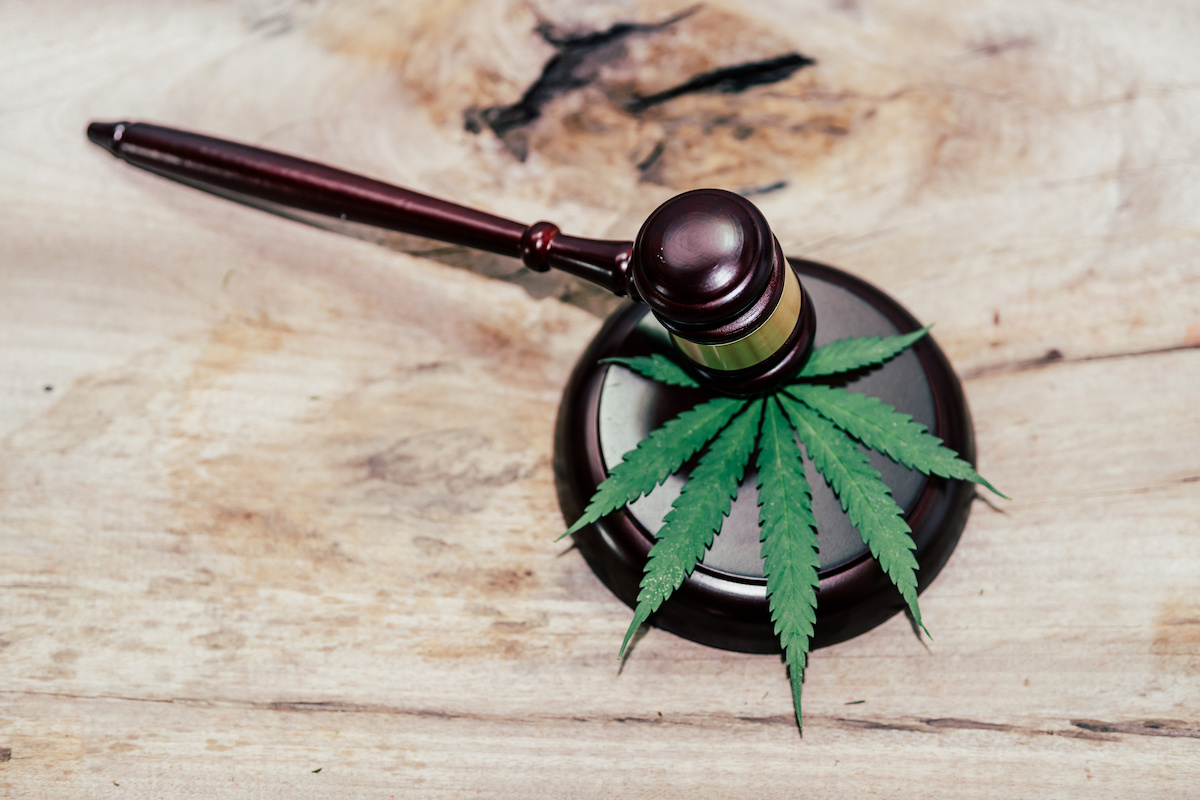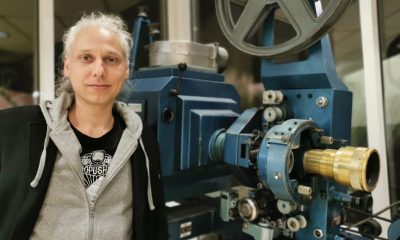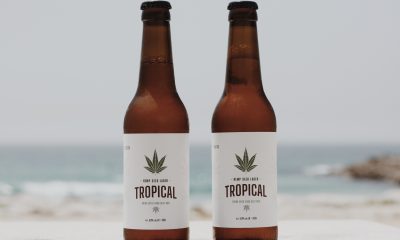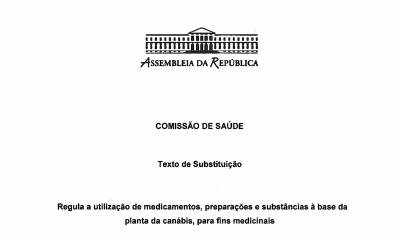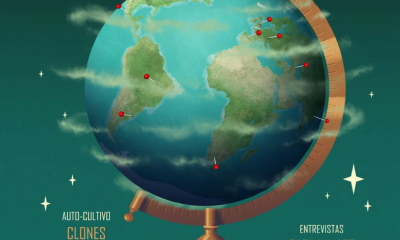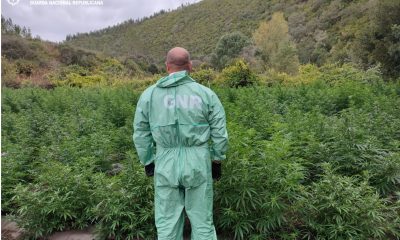The drug law in Portugal and its application: legislative guidelines
By Margarida Leitão Ferreira – Lawyer*
This article was originally published in issue #1 of Cannadouro Magazine
When we talk about the law to combat drugs in Portugal, we mean DL 15/93 of 22 January. From this text and in its preamble we extract the following excerpt:
“…Such an instrument of public international law seeks to pursue three fundamental objectives. Firstly, to deprive those who traffic in narcotics of the proceeds of their criminal activities, thereby removing their main motive or incentive and, at the same time, preventing the use of illicitly accumulated fortunes from allowing transnational criminal organizations invade, contaminate and corrupt state structures, legitimate commercial and financial activities and society at all levels. Secondly, adopt adequate measures for the control and supervision of precursors, chemicals and solvents, substances that can be used in the manufacture of narcotic drugs and psychotropic drugs and which, due to the ease of obtaining and availability on the current market, have led to an increase in the clandestine manufacture of narcotics. and psychotropic substances. Third, to reinforce and complement the measures provided for in the 1961 Convention on Narcotic Drugs, as amended by the 1972 Protocol, and in the 1971 Convention on Psychotropic Substances, bridging gaps and enhancing the legal means of international cooperation in criminal matters...” – our bold.
Let's see that the objectives of the law were nothing more than a transposition of the Convention in force since 1972 into the Portuguese domestic legal system. As can be seen, the legislator had, in some way, and two decades after the entry into force of this set of rules internationally recognized, the need to regulate through national legislation appropriate to the Portuguese context and its axiological-legal reality.
A Eurobarometer study carried out in 1997 shows that Portuguese people perceive drug-related issues as the main social problem in the country. Thirteen years later, in 2000, when the new law to decriminalize drug consumption began to be implemented, drugs came to occupy the 13th place in the list of social issues that caused the greatest concern to the Portuguese. An improvement, therefore.
The law for the decriminalization of drug consumption in Portugal (Law 30/2000) was a pioneer, in the way it implemented legislative changes, decriminalizing drug possession, as long as it was proven that the doses held by the consumer would be intended only for their consumption.
With regard to cannabis in particular, the problem has since improved, of course, but although it is not a crime to consume cannabis, and each person can have about 25 grams of flowers or 5 grams of hashish with them, buying and selling is prohibited. So, in real life, where do so-called soft drugs come from?
In judicial terms, the cases were dealt with in a much more oriented way towards the integration of the drug addict, with judicial decisions starting to treat the defendants not as the cause of the problem but as citizens who suffer from the social problem of the illicit sale of dangerous and addictive substances. . For Portuguese politicians, drug addiction came to be seen as a disease that the law should prevent, and drug addicts should be considered, before the law, as patients in need of assistance and not as criminals.
The policy thought was oriented to give positive results, and should cover several areas that result in obtaining the final scope, that is, focus on various aspects such as prevention, deterrence, risk and harm reduction, treatment and social reintegration.
In the Portuguese courts, we see that cannabis continued to lead the cases of conviction with a very considerable difference to the other substances. We realize that in our country the courts and their decision makers may have divergent decision criteria, just by having different perceptions about the illicit or the substance.
It goes beyond the judge that, given a gap in Law 30/2000, people in Portugal continue to be convicted for drug use, with the application of prison sentences. In fact, through SICAD reports, we have verified that, since 2011, two to three thousand people have been accused of drug-related crimes per year, and of these 1900 to 2500 result in conviction.
Most convictions are for a crime of trafficking, but since 2015 we can attest that convictions for consumption have increased considerably. About 80% of these crimes are associated with cannabis.
Most people are convicted of trafficking (1500 to 2000), but since 2015, convictions for consumption have increased, rising from four hundred to 774 in 2018. The vast majority (82%) of sanctioned consumption is of cannabis. Most consumers are sentenced with fines (689), but the report states that 53 were sentenced to suspended prison terms and XNUMX to effective imprisonment.
Cashier: From this we extract that Portugal continues to apply the law and to practice convicting people for drug consumption despite, supposedly, having decriminalized this consumption. This legal nonsense has its genesis in a legal gap that has generated debates among jurists.
Law 30/2000 decriminalized the consumption, acquisition and possession of drugs for personal use, but only for those found with “the amount required for the average individual consumption during the ten-day period”, that is, whoever was caught in possession of a quantity for more than 10 days of consumption, would be in a legal limbo that the law did not define. Faced with contrary decisions in the courts, a ruling by the Supreme Court of Justice ended up choosing the third aspect: anyone found with more than 10 doses of daily consumption incurs the drug consumption crime. Despite the disagreements, judgment 8/2008 of the STJ was approved, established jurisprudence and thus opened the door again for the courts to convict people of the crime of “drug consumption”. While many do not, some do, and convictions have grown, now exceeding seven hundred. According to the SICAD annual report, “in about 98% of convictions for consumption in 2017, an express reference was made to this Judgment”.
Among those who opposed this subversion of the principle of decriminalization of consumption, some considered that a change in the law would be necessary to remove the legal trap that led to the current situation. The counselor judge (that is, from the STJ) Eduardo Maia Costa, author of the 1998 book “Criminal Drug Law – A Brief History of a Failure”, criticized in February, on the blog sine die, the 723 convictions for drug use as “the highest number ever”.
STJ judgment 8/2008 continues to wreak havoc. Speaking to DN, Judge Eduardo Maia Costa stated that the solution is to “clarify the issue through legislation, considering once and for all article 40 of Law 15/93”, the previous law that criminalized consumption and that was once and for all revoked. recovered in part by the judgment.
João Goulão, president of SICAD and the main face of the decriminalization policy since 1999, also criticizes the “biased understanding of the legislation: the objective was that consumption would not lead to conviction”, adding that “maybe it is a good time to rethink this and improve the law by closing that gap”.
We patiently wait for society to organize itself, in order to allow patients to consume authorized in an egalitarian way. Answering the question we posed above: where does cannabis for adult use, commonly referred to as recreational use, come from? It depends exclusively on the supply of the black market, the result of trafficking, because in Portugal there are no places like coffee shops, authorized in the Netherlands, or social cannabis clubs, such as those regulated in Spain, where you can buy and use cannabis safely, with a minimum of quality and contributing to the legal economy, through the payment of fees and taxes.
And what, after all, are the cannabis stores that have already opened in several cities in Portugal?
These are spaces called “Cannabis Light”, who claim the right to sell industrial hemp-derived products that are rich in CBD and contain less than 0,2% THC. Although the European Commission has already recognized that CBD is not a narcotic, in our country this legislation does not exist or is not recognized, and these stores still suffer many reprisals from the authorities, such as the Judiciary Police or ASAE.
It follows that, in addition to the urgent revocation of article 40 of Law 15/93, it is necessary to clarify the gray area where the CBD is located, e strictly speaking, it becomes evident that all legislation based on prohibition must be rethought.
___________________________________________________________
* Graduated in Law in 2005, with an internship completed and a member of the Portuguese Bar Association since 2007, Margarida Leitão Ferreira practiced law between Porto, Matosinhos and Vila Nova de Gaia for 15 consecutive years, exclusively in the area of civil, banking and executive law. In 2015, she entered the real estate field and also dedicated herself to the study of cannabis in the legal field and the various challenges that this topic represents. Cannabis has been playing a significant role in your personal and professional journey.
